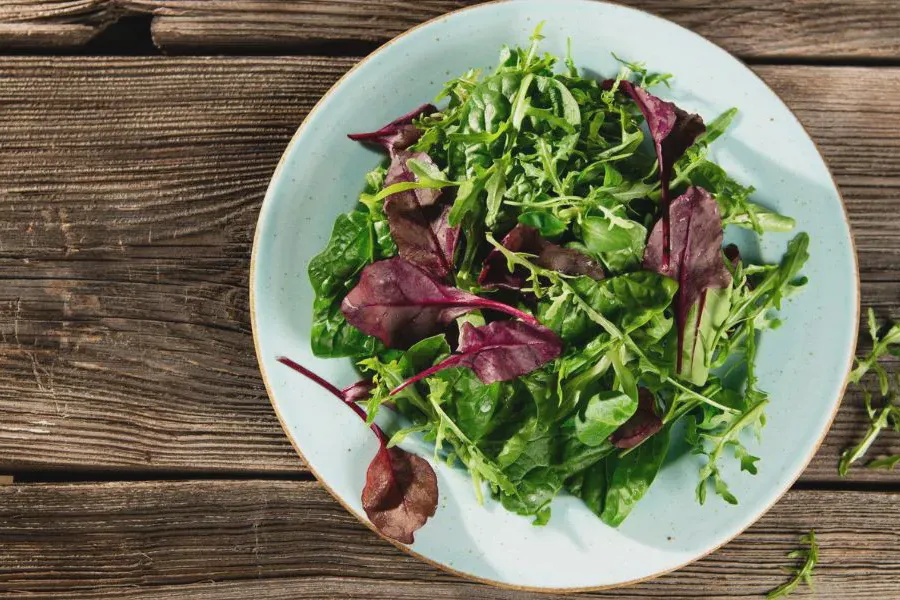What is the green Mediterranean diet?
The first thing you should know is that the green Mediterranean diet reduces the intake of poultry and completely eliminates red and processed meats in favour of plant-based proteins, whereas the traditional diet allows these foods sometimes. The green Mediterranean diet builds on the same principles but introduces a few other changes too. And it’s important to remember that it was studied as a calorie-restricted diet in order to produce weight loss. Here is a list of the main changes compared to the traditional version of the diet.
- Lower intake of meat
- Plant-based protein shakes to replace some animal protein
- 1/4 cup of walnuts per day (28 g)
- 3-4 cups of green tea per day
- 100 g of Mankai duckweed per day, a high-protein aquatic plant rich in polyphenols
- Higher intake of leafy greens
- Physical activity up to 5x per week
If you don’t have access to Mankai duckweed, you can look for other foods high in polyphenols such as berries, cocoa powder, coffee beans, nuts, seeds, purple grapes, white beans, extra virgin cold-pressed olive oil, basil, ginger or vinegar.

Improved weight loss
A study from 2020 that first tested the green Mediterranean diet showed that participants in the green diet group lost a total of 6,2 kg, the traditional Mediterranean diet group lost 5,4 kg, and the generic healthy diet group lost only 1,5 kg. Researchers also noted that the green variation amplified the beneficial cardiometabolic effects of the Mediterranean diet. This was encouraging and more research on the diet followed.
Protection against diabetes
In a 2021 study, people who followed the green Mediterranean diet had significantly higher levels of the hormone ghrelin than people who adhered to a more traditional Mediterranean diet. Ghrelin is produced in the stomach overnight when we sleep and any time we don’t eat during the day. It serves as a hunger signal and its levels fall after we eat. The research noted that people who have higher ghrelin levels after experiencing weight loss have a lower risk of developing diabetes and other metabolic diseases. This makes the green diet a great choice for those at risk of type 2 diabetes.
More visceral fat burned
A 2022 study found that the green Mediterranean diet reduced the most visceral fat (14%) compared to the traditional Mediterranean diet (7%) and a generic healthy diet (4,5%). This is a great benefit because visceral fat is the type that surrounds organs, including the liver, pancreas, and kidneys and poses the highest health risk.
Should you try it?
The combination of replacing some animal protein with plant protein, adding more polyphenols, and limiting calories to achieve weight loss makes the green Mediterranean diet an incredibly healthy option. Keep in mind that it requires more effort and structure compared to the classic Mediterranean diet. If your goal is to reduce visceral fat, lose weight, and bolster your health, then the green variant may be perfect for you. If you need a little bit more freedom in your diet, don’t worry, the traditional Mediterranean diet is still a great choice.







